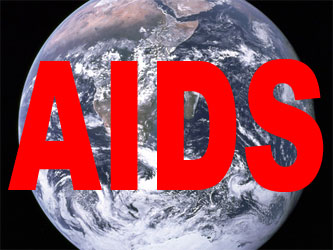Global warming could worsen HIV/AIDS epidemic
Global warming could worsen HIV/AIDS epidemic
mongabay.com
April 30, 2008
|
|
A number of studies have suggested that climate change could expand the range of tropical diseases like Dengue fever and Encephalitis. Now a researcher from the University of New South Wales (UNSW) in Australia says that global warming could lead to an increase in HIV infection rates worldwide.
In a panel discussion between top HIV researchers, Professor Daniel Tarantola said that warming could strain already meager health and social resources in the world’s poorest and most vulnerable countries, worsening the incidence of HIV and other diseases.
“It was clear soon after the emergence of the HIV epidemic that discrimination, gender inequality and lack of access to essential services have made some populations more vulnerable than others. These problems have not gone away,” Professor Tarantola said. “Today, additional threats are lurking on the horizon as the global economic situation deteriorates, food scarcity worsens and climate change begins to affect those who were already dependent on survival economies.
“Climate change will trigger a chain of events which is likely to increase the stress on society and result in higher vulnerability to diseases including HIV,” he said.
 |
Climate change may also cause indirect health impacts by jeopardizing water supplies, producing stronger storms, and triggering migration from the countryside to cities.
Professor David Cooper, Director of UNSW’s National Centre in HIV Epidemiology and Clinical Research, added that drug distribution and health care will continue to be critical in fighting the HIV/AIDS epidemic.
“Science has achieved great strides towards shaping a more effective response to HIV. Yet research has not succeeded in producing the hoped-for âmagic bullets’ of either a cure or a vaccine,” Cooper told the forum on “A Future Free of HIV”.
“We need to escalate our research efforts while sustaining and expanding what we know works: good prevention and access to life-saving antiretroviral therapy and integrated care.”